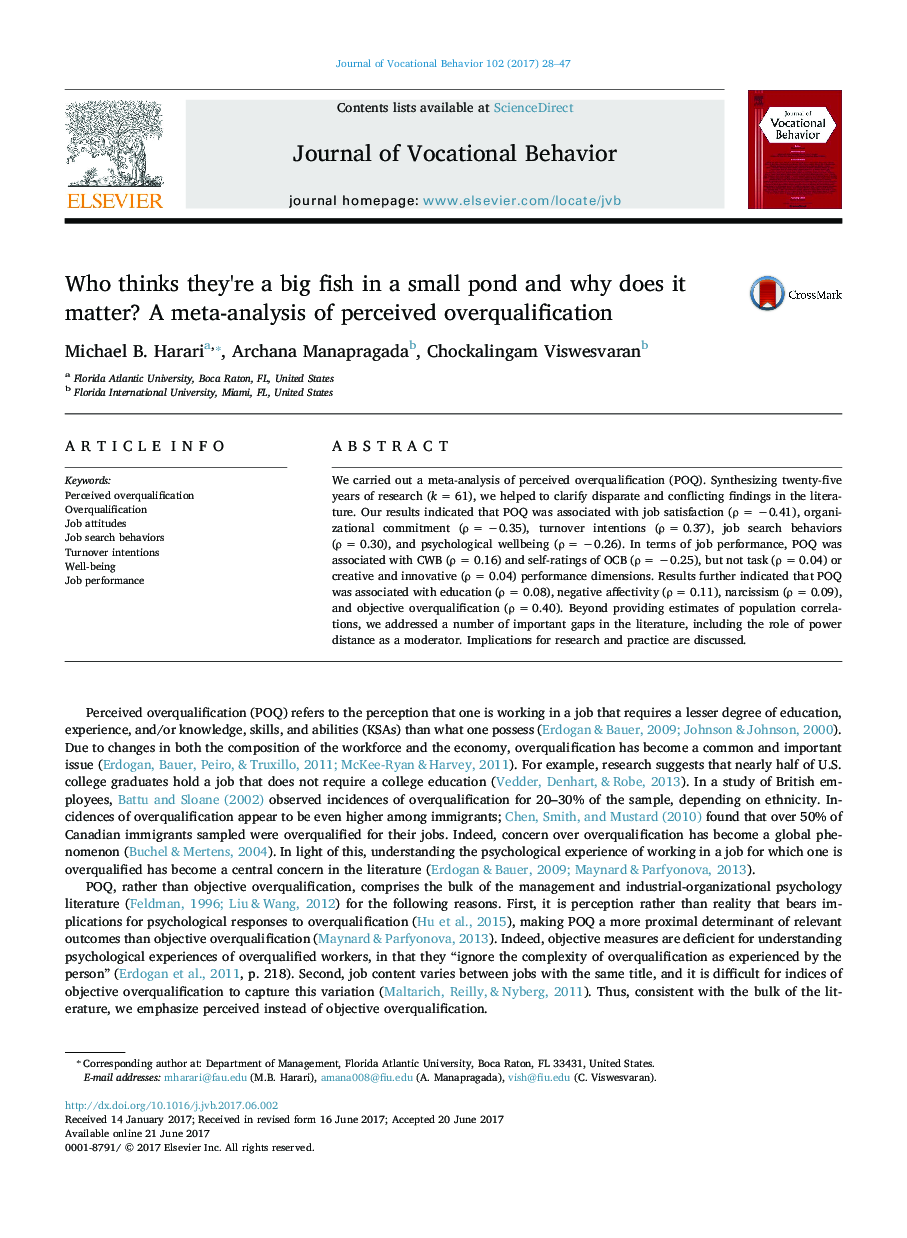| Article ID | Journal | Published Year | Pages | File Type |
|---|---|---|---|---|
| 5035099 | Journal of Vocational Behavior | 2017 | 20 Pages |
â¢POQ was associated with job attitudes, retention, and psychological wellbeing.â¢POQ was related to CWBs and self-ratings of OCBs, but not task performance or CIP.â¢POQ was associated with education, NA, narcissism, and objective overqualification.â¢Several relationships were moderated by power distance.â¢Job attitudes partially mediated the POQ-turnover intentions relationship.
We carried out a meta-analysis of perceived overqualification (POQ). Synthesizing twenty-five years of research (k = 61), we helped to clarify disparate and conflicting findings in the literature. Our results indicated that POQ was associated with job satisfaction (Ï = â0.41), organizational commitment (Ï = â0.35), turnover intentions (Ï = 0.37), job search behaviors (Ï = 0.30), and psychological wellbeing (Ï = â0.26). In terms of job performance, POQ was associated with CWB (Ï = 0.16) and self-ratings of OCB (Ï = â0.25), but not task (Ï = 0.04) or creative and innovative (Ï = 0.04) performance dimensions. Results further indicated that POQ was associated with education (Ï = 0.08), negative affectivity (Ï = 0.11), narcissism (Ï = 0.09), and objective overqualification (Ï = 0.40). Beyond providing estimates of population correlations, we addressed a number of important gaps in the literature, including the role of power distance as a moderator. Implications for research and practice are discussed.
